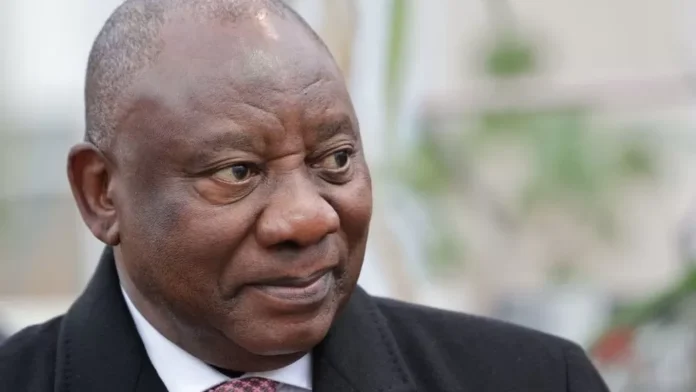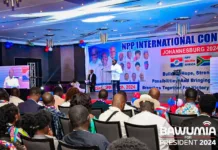
South African President Cyril Ramaphosa is facing a possible impeachment threat over the “Farmgate” scandal.
The president has been accused of covering up a $4m (£3.3m) theft from his farm in 2020, including kidnapping and bribing the burglars into silence.
A three-volume report from an independent panel has found that Mr Ramaphosa abused his position and may have broken an anti-corruption law.
He has denied wrongdoing, and said just $580,000 was stolen.
He said the money was from selling buffalo.
The panel’s findings have been handed to parliament, which is set to examine them and decide whether or not to launch impeachment proceedings next week.
Mr Ramaphosa is less than a month away from a conference which will decide if he can run for a second term with his party, the African National Congress (ANC), in 2024. The incident could be particularly damaging as Mr Ramaphosa ran for office on an anti-corruption ticket.
The top body of the ANC is meeting later on Thursday and is expected to discuss the report.
The president’s meeting with provincial lawmakers, planned for Thursday, has been postponed to give Mr Ramaphosa time to study the panel’s findings – perhaps the first indication that the president is facing pressure to not continue with business as usual.
The report raises several uncomfortable questions for the president. Judging by the fervent reaction from opposition parties, some of whom are calling for him to step down, this has the potential to cost him his job.
In particular, the panel asks:
Why did the president have some $580,000 stored inside a sofa?
Why was the theft of that money not reported to the police two years ago?
Why the buffalo he says were sold remain on the farm?
It’s difficult to escape the irony of the claims and the quagmire the president finds himself in. This is after all the man whose political image and rise to the presidency was built on fighting corruption, which dogged the country under his predecessor President Jacob Zuma.
The panel’s scope was limited to recommending that parliament act.
If MPs decide that an impeachment committee should investigate further – and they find the president guilty of serious misconduct, that would set in motion the process for an impeachment vote.
We are some way from that but in the court of public opinion what has already been established is damning.
At best it puts Mr Ramaphosa’s moral standing in question, at worst it suggests an abuse of power and perhaps a violation of the constitution – the same constitution he helped draft in the early 1990s.
His party, which has defended its leaders through many a scandal in the past, is only compelled to sack him if he is the subject of criminal charges – and he is not.
Still, these developments, ahead of the party’s elective conference later this month, where Mr Ramaphosa had seemed a shoe-in to be re-elected, have placed the veteran politician and game farmer in a rather precarious situation.
The Farmgate scandal erupted in June, when a former South African spy boss, Arthur Fraser, filed a complaint with police accusing the president of hiding a theft of $4m in cash from his Phala Phala farm in the north-east of the country in 2020.
Mr Fraser, a close ally of Mr Zuma, alleged that the money could have been the proceeds of money-laundering and corruption, and accused the president of kidnapping and bribing the burglars.
Holding such a large amount of money in dollars could violate foreign exchange control laws.
Mr. Ramaphosa has confirmed a robbery, but said the amount stolen was less than that alleged, and denied attempting to cover it up.
Some $580,000 which had been paid in cash for buffalo was stolen from under sofa cushions in the farmhouse, he said.
“I did not ‘hunt’ for the perpetrators of the theft, as alleged, nor did I give any instructions for this to take place,” he wrote in a submission to the panel’s report, according to AFP news agency.
“We think that the president has a case to answer on the origin of the foreign currency that was stolen, as well as the underlying transaction for it,” the report said. It added: “The president abused his position as head of state to have the matter investigated and seeking the assistance of the Namibian president to apprehend a suspect.”
Namibian President Hage Geingob has previously denied any involvement in the incident.
Source: BBC



